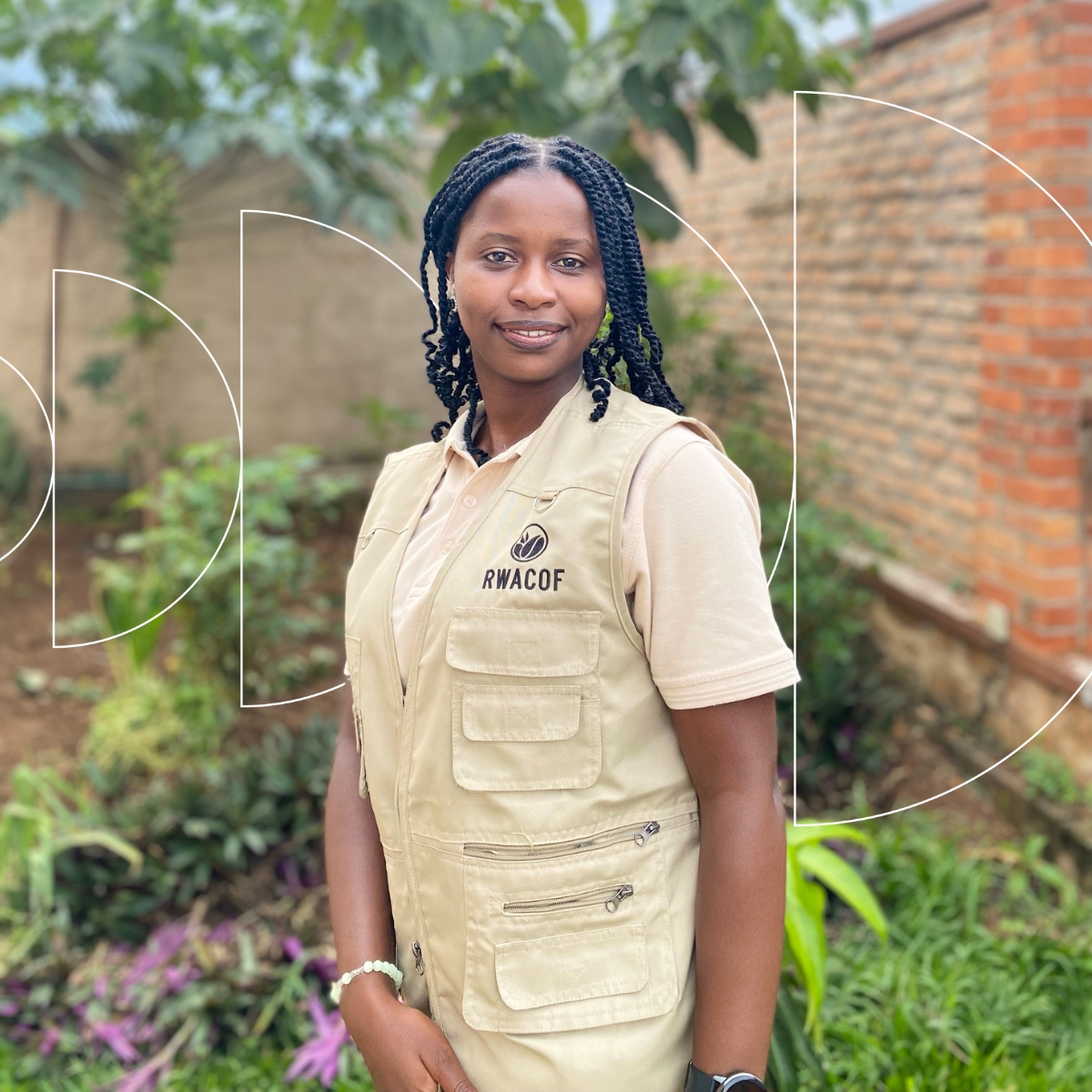September 30, 2024 – Sandrine Nikuze joined Rwacof (Sucafina’s sister company in Rwanda) in 2020 as Coffee Washing Station Manager. Two years later, she was promoted to become Rwacof’s first Environment, Health, and Safety (EHS) Coordinator. In this Q&A, Sandrine shares more details about her role and insights into how we manage EHS in Rwanda.
1. What does your role as EHS Coordinator for Rwacof involve?
Sandrine: As EHS Coordinator my primary role is to prevent incidents and accidents by identifying and addressing potential risks. I conduct regular – quarterly and annual – inspections at the coffee washing stations (CWS) and the dry mill, communicate recommendations to management and implement them. At our quarterly Environmental & Social Management System (ESMS) Committee meetings we discuss how to address issues Rwacof is facing, analyze internal audit results and monitor key indicators to ensure Rwacof maintains a good working environment.

In my role, I regularly meet with employees, listen to their concerns, and advocate for them. I also conduct trainings to raise awareness on the importance of EHS. Topics covered include first aid, fire safety, hygiene, and PPE use. I am happy that I’ve helped my co-workers to understand the importance of reporting incidents. When incidents happen, I conduct investigations, report, and follow up as needed. One recent initiative was the establishment of a worker representative committee at Rwacof, voted for by the workers themselves.
We’ve also posted suggestion boxes in different places, which are already being used.
2. Since you joined Rwacof, have you received any formal training in EHS?
Sandrine: While at Rwacof, I completed my NEBOSH (National Examination Board in Occupational Safety and Health) certification. I will receive my certificate soon.
3. What are the main health & safety risks in an operation like Rwacof?
Sandrine: Two of the main health & safety risks at the dry mill are: the high level of noise produced by our machines and the height risk for our elevators. To address these risks we gave PPE to everyone working in noisy areas, while only those with a relevant permit can work at height. At the CWS, wastewater isn’t always processed using our current wastewater treatments; we are still studying the best approach to manage this. The other risk – which people often don’t report – is neck and back pain due to prolonged sitting.
4. In 2023 you were nominated to join the IMPACT Ambassadors Program. What are your main responsibilities as an ambassador?
Sandrine: I was proud to be part of the first cohort of IMPACT Ambassadors. We are still learning, but my main responsibility is to raise awareness of sustainability and advocate for implementation. After looking at our living income data I see myself developing a project, with the support of the management, to increase the living income of the farmers we work with.
5. What improvements to EHS are you planning for 2024?
Sandrine: From the results of the internal inspections at both the farmer level and the organization level and internal and external audits, I plan to work with the team by creating more projects to raise funds, develop solutions, and implement the recommendations. I plan to increase staff training and continue to advocate for EHS best practices.
This Q&A was originally published in Sucafina’s 2023 Sustainability Report, “Making an IMPACT.” Read the full report to discover all of the latest progress updates on Sucafina’s Sustainability Strategy and our IMPACT Program.